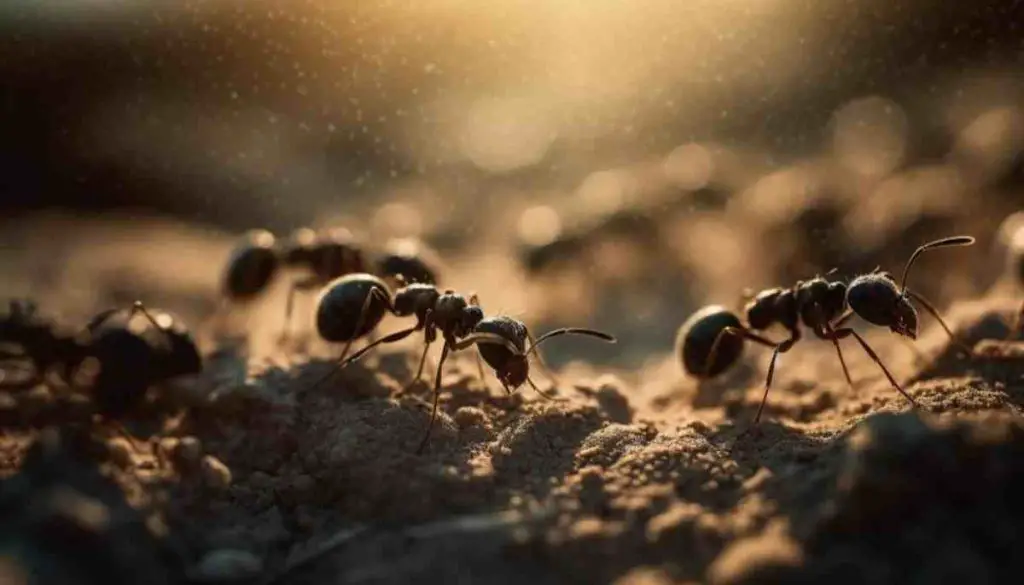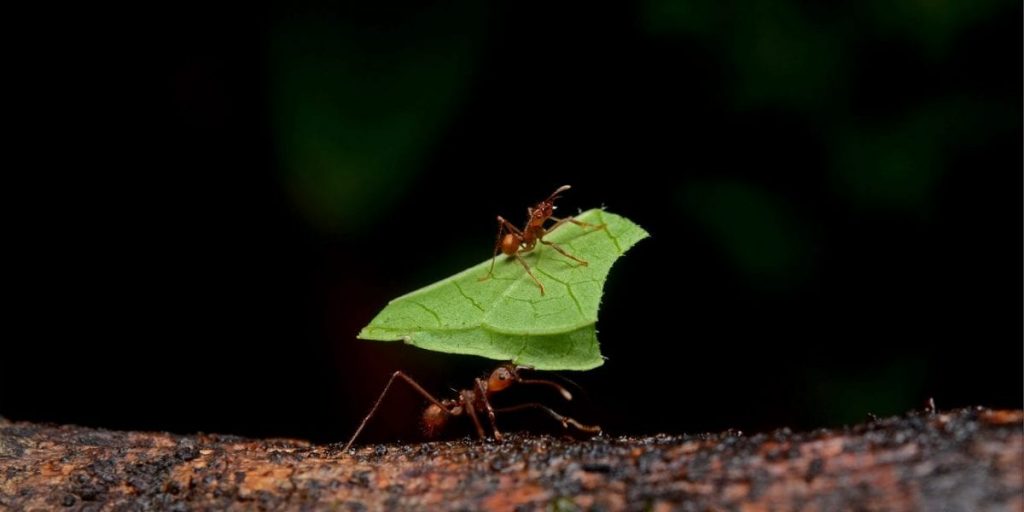The ants have many fascinating things to teach us. More recently, scientists have discovered that ants employ safety measures such as “social distancing” to protect their colonies from disease.
Social distancing of ants
In a recent paper presented by a group of passionate biologists, they shared their discovery of how black garden ants create and implement this extraordinary strategy to protect their nests, and consequently their colonies, from infection. Previous research has shown that some animals adapt their behavior to reduce the spread of infections.
For example, we humans, to prevent an infection from spreading like wildfire, might cordon off parts of our homes or set up quarantine zones in hospitals. But it turns out we are not the only species that alters their surroundings for the sake of health. Our little friends have a similar strategy up their sleeves.
The research team, from the University of Bristol, took a field trip to collect the industrious critters and created 20 colonies in their lab. After the ants had a day to get used to their new environment, another batch of ants was added to their colonies.
Here’s the trick: half of the newly added aaa were infected with a fungus. Observations were made using cameras and micro-CT scanners to study their behavior and analyze the structure of the tunnels. Interestingly, the colonies where the infected ones were introduced began to dig new tunnels more quickly.

After six days, a significant increase in the distance between tunnels was observed in infected nests. The ants also showed strategic maneuvers. The queen, food and brooding area were placed in a less central position. In addition, it was observed that infected ants spent most of their time on the surface of the colony, which limited their interaction with healthy ants.
Why all these changes? Well, they are preventative measures. These ants modify their nests to prevent the spread of the infectious fungus, protecting the colony from the potential threat. To better understand this intriguing behavior, our scientists in Bristol conducted simulations of disease transmission. This accelerated the spread of the disease in the simulated environment.
They found that the techniques used by the ants helped minimize the fungal burden in the colony and significantly improved their chances of survival. With a hands-on approach, ants teach us more about their species and methods of disease prevention. The implications of these findings go beyond the fascinating world of ants and offer valuable insights into human practices.
By observing and understanding the strategic behaviors adopted by black garden ants, we can draw parallels to improve our disease prevention strategies. The idea of dynamically adapting environments to limit the spread of disease could inspire future architectural designs or public health policies, focusing on creating adaptable spaces that reduce the risk of infection.

This research not only advances our understanding of wildlife response to disease, but also challenges our perception of intelligence. Historically, intelligence has often been attributed to problem-solving in humans or larger mammals. The ingenuity these ants demonstrate in responding to environmental threats suggests a complex understanding and capability within the insect kingdom.
Thanks to their meticulous methods, ants demonstrate a level of collective intelligence that continues to fascinate scientists and push us to reconsider the hierarchical view of intelligence in the animal world.
How does this impact us as humans?This is a fascinating discovery about the complexity of ant behavior and how ants survive disease. This research could provide a new perspective on how we manage the spread of disease in our societies.
It may also shed light on the importance of adapting our environments to contain the spread of infections. This exciting development will surely pave the way for more interesting revelations about the ingenious survival strategies of the animal kingdom. We owe everything to the diligent team at the University of Bristol for this enlightening contribution.
So, the next time you spot a colony of ants in your yard, remember that they are not just little creatures running around. They are miniature engineers and skilled survivalists, working diligently to ensure the well-being of their community.
The study is published on bioRxiv.
#Ants #Type #Social #Distancing #Prevent #Spread #Disease
